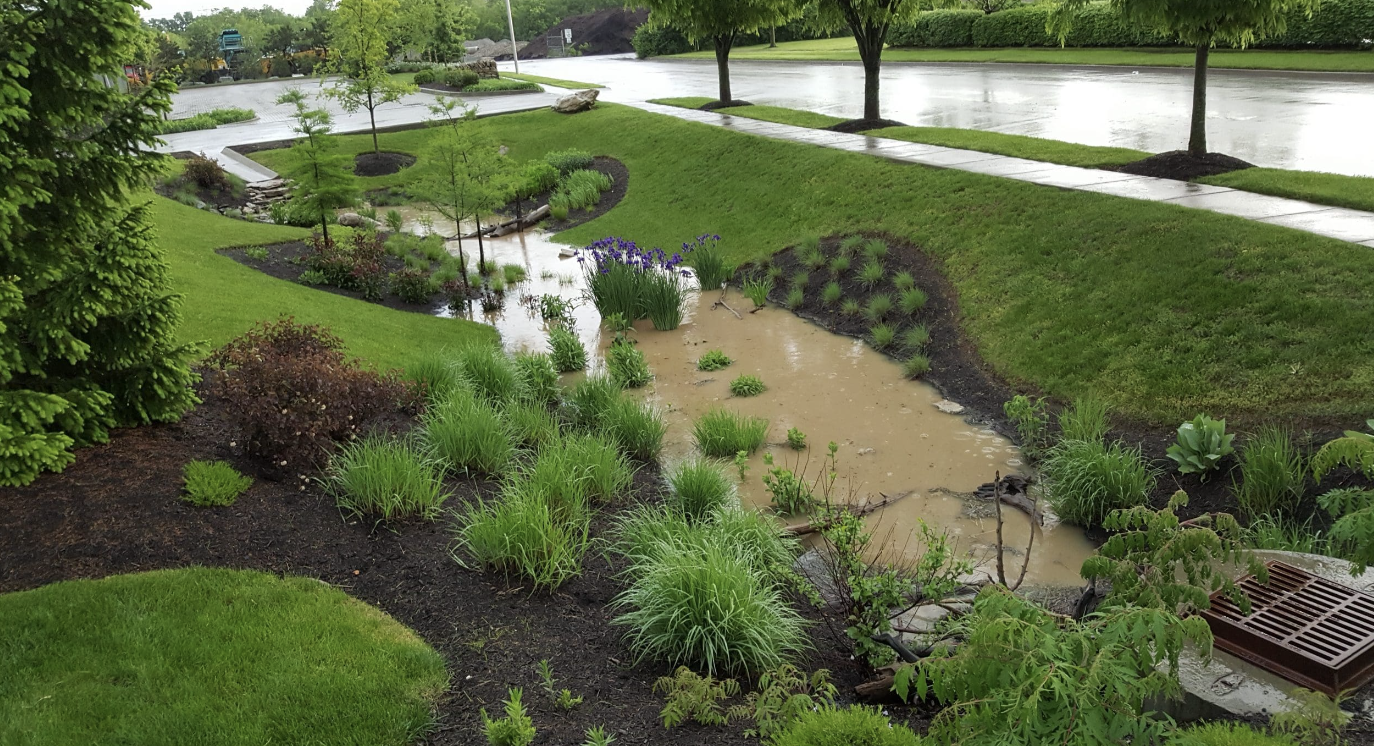Stormwater Management Cost Analysis
Executive Summary
Life Cycle Cost Analysis (LCCA) is a method used to assess the total cost of ownership for a project, or elements of a project.

Increased development is creating more significant impervious areas in the built environment, causing stormwater runoff volumes to rise and add to the workload of municipal wastewater treatment plants. Treating, pumping and distributing water uses much energy, resulting in greenhouse gas emissions and increased carbon footprints. The landscape horticulture industry is uniquely positioned to provide alternative solutions to traditional stormwater management techniques by reducing the runoff at the source and, therefore, reducing the environmental impacts of stormwater treatment.
This paper applies the Life Cycle Cost Analysis (LCCA) method to five scenarios to determine their economic performance compared to traditional strategies. In almost every case, these sustainable, low-impact designs were cost-effective over the project's life compared to conventional “pave and convey-away” methods while providing additional environmental and social benefits. Average annual maintenance costs were consistently lower than the traditional techniques, which often required significant material removal as part of their rehabilitation, unlike the more durable natural designs.
On-site stormwater management methods are viable strategies that add to the sustainability of our built environment. Working together, planning, and expertise from various professions are essential to success with these stormwater management methods. Each site has its characteristics that can be developed into cost-effective and sustainable landscape solutions.

